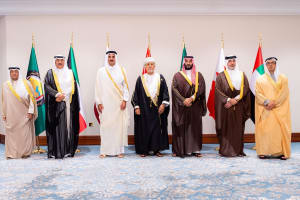Austria joins Germany in criticizing Eurovision boycott threats, says it would deepen divisions, not ‘improve situation in Gaza’
‘Eurovision founded to bring nations together through music’ says Germany’s cultural minister

Austrian Deputy Foreign Minister Sepp Schellhorn has urged countries not to boycott the 70th Eurovision Song Contest, which Austria will host in May 2026 after winning this year’s competition.
“Cultural boycotts are stupid and pointless; they don't get us anywhere," Schellhorn said in an interview last week with Austrian news outlet KURIER.
He highlighted the case of Israeli conductor Lahav Shani, who was disinvited from a Belgian music festival due to his role as music director of the Israel Philharmonic Orchestra.
Schellhorn said that subjecting artists to “an attitude test” is unacceptable and dangerous.
“Art and culture are of essential importance,” he stated. “Cultural exchange enables dialogue; it builds bridges. Especially in times like these, this is more important than ever.”
His comments were echoed by Austrian Foreign Minister Beate Meinl-Reisinger, who wrote a letter to several European countries that had advocated for the boycott.
“As foreign minister of the host country, I am deeply concerned about the risk of a rift between the members of the European Broadcasting Union on this issue,” Meinl-Reisinger wrote, according to Reuters.
“Such a rift would only deepen the discord and preclude opportunities for important dialogue between artists and the public – without improving the situation on the ground in Israel and Gaza,” she added.
Several countries, including Iceland, Spain, Ireland, the Netherlands, and Slovenia, have called for a boycott of the 2026 Eurovision contest if Israel is allowed to participate, citing the situation in Gaza and the ongoing International Criminal Court (ICC) investigation into war crimes allegations against Israel.
“Excluding Israel from the Eurovision Song Contest or boycotting the event would neither alleviate the humanitarian crisis in Gaza nor contribute to a sustainable political solution,” Meinl-Reisinger argued.
Spain announced last Tuesday that it will withdraw from the 2026 Eurovision Song Contest if Israel takes part. As one of the five largest financial contributors to the European Broadcasting Union (EBU), which organizes the competition, Spain’s stance carries significant weight.
On Saturday, German Culture Minister Wolfram Weimer warned that excluding Israel from the event would go against the intent of Eurovision, which is to bring nations together through music.
“Eurovision was founded to bring nations together through music,” Weimer stated. “Excluding Israel today goes against this fundamental idea and turns a celebration of understanding between peoples into a tribunal.”
“It's precisely because Eurovision was born on the ruins of war that it should not become a scene of exclusion,” he added.
The first official calls to exclude Israel from Eurovision emerged following the 2025 contest in May, led by Iceland and Spain. The EBU is expected to decide on Israel’s participation at its upcoming meeting in December.
Golan Yochpaz, CEO of Israel’s public broadcaster Kan, rejected calls for the Jewish state to drop out of the song competition.
“There is no reason why Israel should not continue to be a significant part of this cultural event, which cannot become political,” Yochpaz said, noting that Israel has been a successful participant on multiple occasions.
“Israel is one of the most successful participants in the Eurovision contest – in the past seven years its songs and representatives have finished in 5th, 3rd, 2nd and 1st place,” he noted.
This year, Yuval Raphael, who had survived the Oct. 7 Hamas massacre by hiding under the bodies of her murdered friends, won first place in the popular vote and was placed second overall.

The All Israel News Staff is a team of journalists in Israel.
You might also like to read this:

















